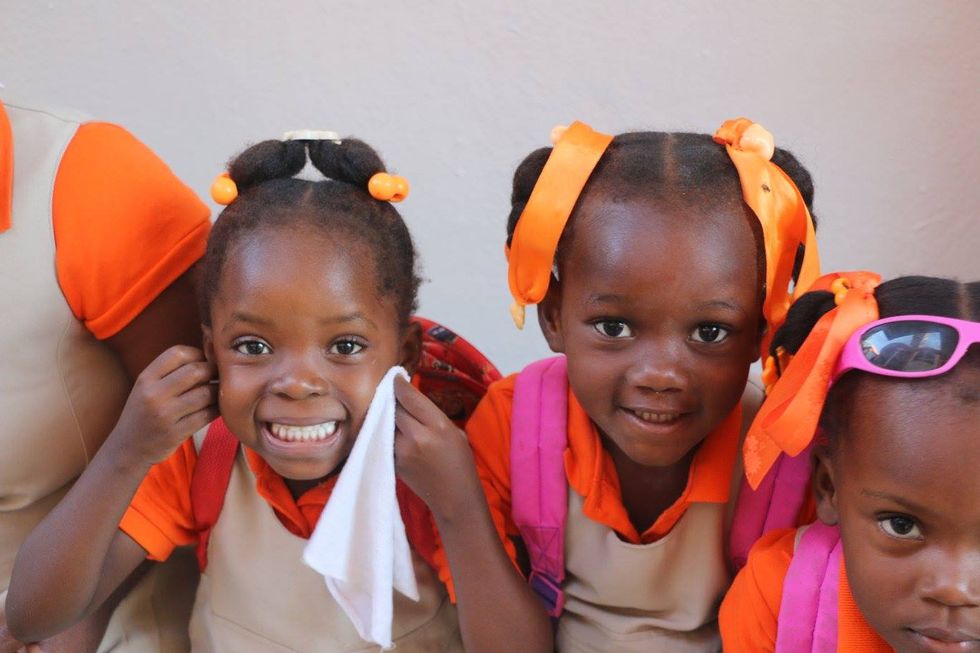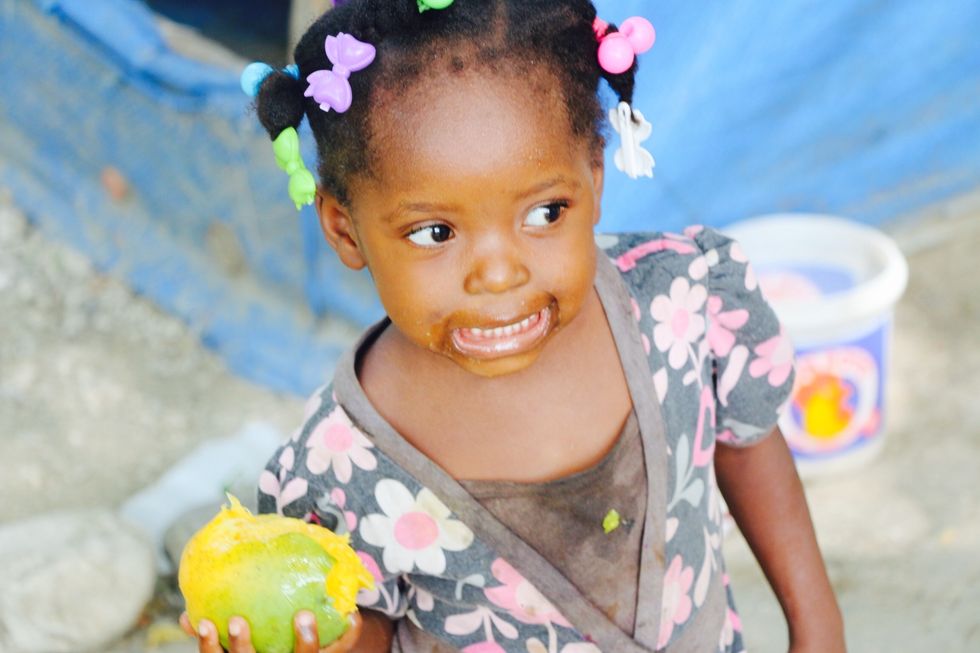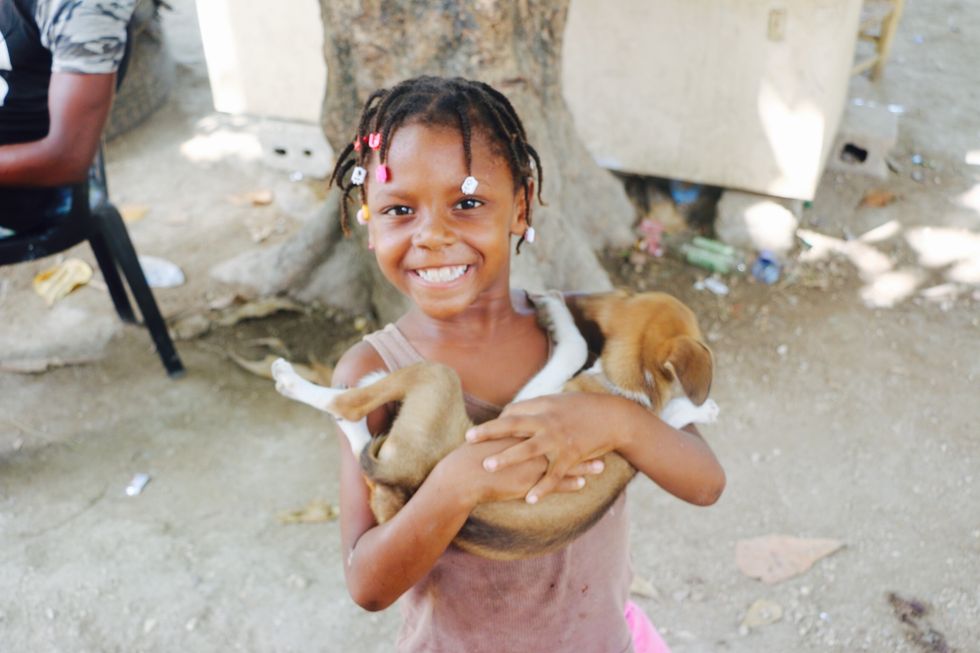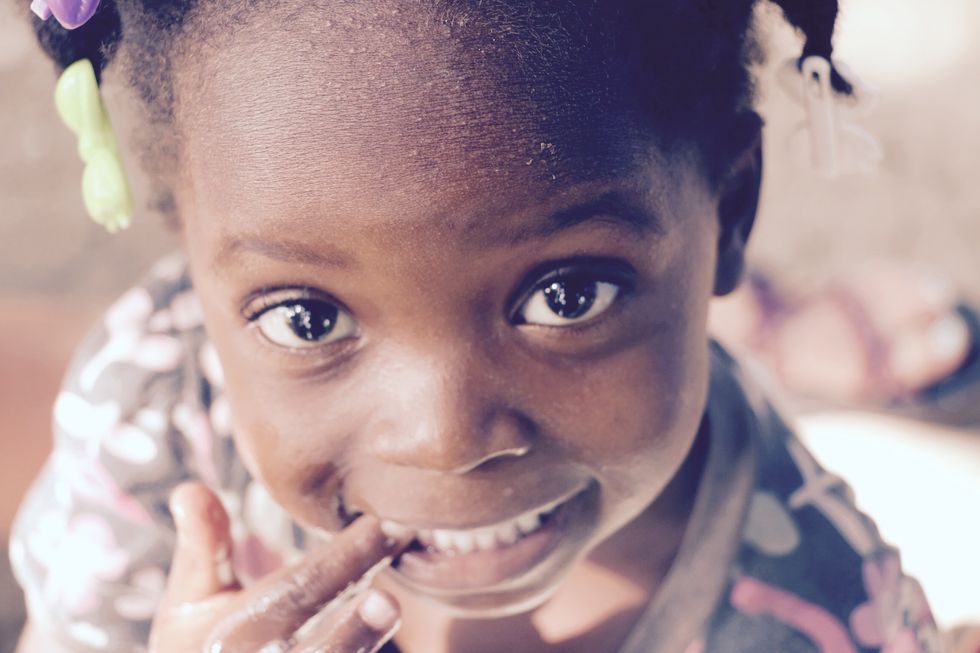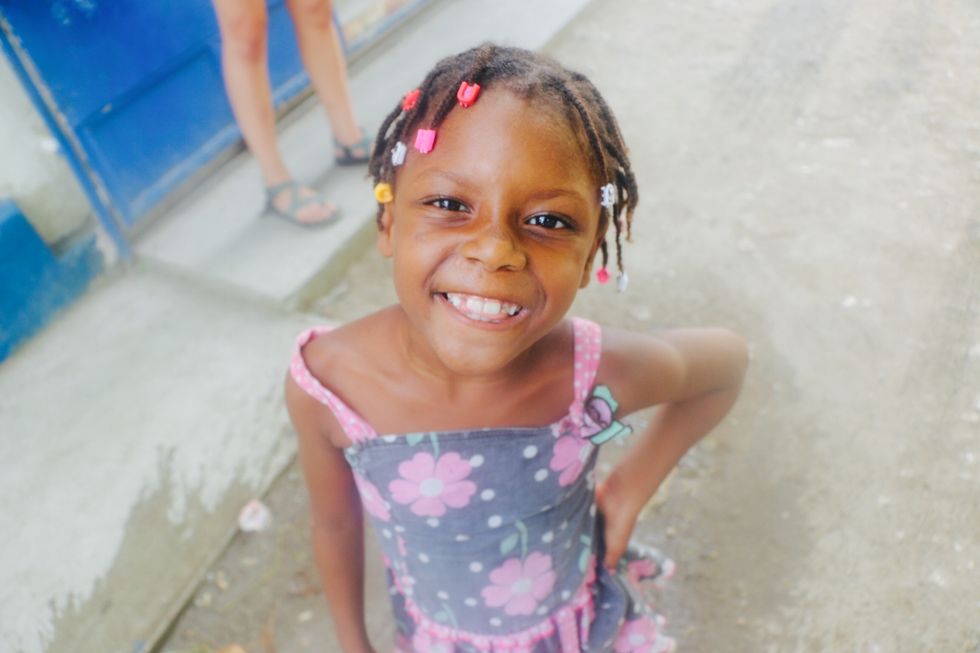During the summer of 2015, before the fall of my junior year of high school, I spent a week in Neply, Haiti for a mission trip. Five months later, I returned to Neply and was met with open arms by the children that I bonded so quickly with. The people I met left an immutable impact on my life, permanently changing the way I view the world and what I want to do in it.
Because of President Trump’s colorful description of what he sees as a worthless nation, here are ten things that I learned in Haiti that inevitably changed me for the better.
1. When you give a little, you get a lot.
To be completely honest, I think most kids are gross and sticky. Allowing unknown children who didn’t even speak my language sit in my lap, play with my hair, and take pictures on my phone took a couple days to get used to. However, any amount of love that was shown to those kids was quickly reciprocated tenfold. If you picked them up, they would shower you with kisses. If you sat with them at lunch once, they would excitedly look for you the next day. In a place where childhood involves more art classes than iPads, appreciation and compassion are boundless.2. Special needs kids love extravagantly.
The first kid I bonded with was a little girl about eight years old named Shelove. After my first trip, Shelove was unofficially diagnosed with autism and post-traumatic stress disorder. She was harder to communicate with than the other children, even when I was speaking Creole. If she didn’t get her way, she would sometimes throw tantrums, but when that little girl smiled it made you smile back. She took to calling me “Mama Blanc,” her white mom, and her attachment only made me want to take care of her even more. While other kids were at school, Shelove was patiently waiting for me to come outside so that she could follow me in whatever task was set for that day. Our bond was inseparable.
3. Laughing at yourself is necessary.
I am horrible at soccer. H-O-R-R-I-B-L-E. So playing in plastic sandals against twenty-year-old men who kicked a ball around every day of their lives was definitely a painful experience. I’m one of those people that has to be good at everything, so being laughed at by a group of Haitian boys definitely hurt my proud, but allowing yourself to look goofy lets your competitive side take a break. I highly recommend for everyone to try it.4. Sugar cane is good for your teeth.
Sugar cane, as in the actual stalk that grows out of the ground, is the reason why most of the kids in Neply had surprisingly healthy teeth seeing as they had little to no access to dental care. Sugar cane is very fibrous, so chewing it emulates chewing on a toothbrush, and because it doesn’t contain processed sugar it doesn’t cause cavities. It also tastes a lot better than Crest whitening strips.5. Education is everything.
In my opinion, one of the biggest health concerns that Haiti faces is a lack of education, particularly for mothers and newborns. If a mother were starving or severely dehydrated, she would not be able to feed her child. The common response to this was to give the baby sugar water (all the American mothers who have done studious breast-milk research gasp in horror).Public health education saved hundreds of lives in Neply alone, providing mothers with proper infant care, nutrition, and safe sex ed. Public health is often underrated in countries where the effects are not so drastic, but would we do without knowing that seat belts can save your life and cigarettes can kill?
6. Life is simpler without social media.
Limited phone service means no Snapchat, Instagram, Twitter, Facebook, etc. No group messages to update you on nonexistent drama or to provoke your FOMO. Without notifications blowing up your phone, you find time to read, give the people around you your full attention, and just revaluate who is positively contributing to your life.7. Sometimes you have to live on Caribbean time.
New York City is the city that never sleeps. To that effect, Neply is the city that allows sleep. Hours don’t matter as much in measuring time. There’s “morning” and “afternoon” and “nighttime,” but it doesn’t get much more specific than that. The lack of a strict agenda was at first an affront to my Type A personality, but eventually, the Caribbean schedule allowed me to focus on the task at hand instead of worrying if I’ll finish in time and already anticipating my next obstacle.8. ALWAYS take pictures.
See below.
9. Laundry machines are the best invention of the 20th century.
Community Day, aka the Day I Would Always Get Sunburned, usually consisted of several hours of assisting mothers in the village doing household chores. Laundry for a family of seven sounds daunting enough before considering that without machines, the women of Neply washed clothes by hand in buckets of cold river water with tiny bits of soap. After Community Day, I would be sunburnt, wrinkled, and too sore to straighten my back. Laundry machines are a blessing. Same goes for dishwashers.
10. Those who start the lowest aim to reach the highest.
The aforementioned 20-year-old young men were mostly finishing up secondary school. When asked what they wanted to do after, the vast majority said they wanted to move to the United States and become police officers, teachers, firefighters, cooks, and basically every other job that we always seem to need more people filling.
They were full of hope and ambition, viewing the U.S. as an immigrant's promised land. They were willing to work because nothing had ever been handed to them and they honestly wanted to contribute to the community, contrary to the popular feeling among Americans that we should only act in our individual interests.
To anyone who reads this, please donate to a non-profit or volunteer to work in a "sh*thole country." The experience will change your life and, if you're lucky, you might change someone else's.

